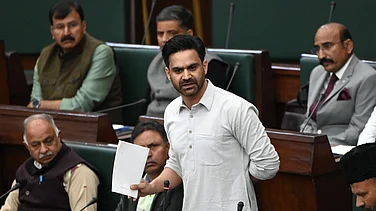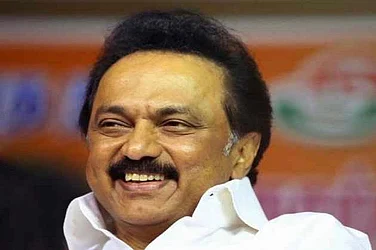It was November 8, 2016. Nirav (name changed on request), in his early 20s was meticulously watching the outcome of the US Presidential elections with his friends. “As the Hillary Clinton versus Donald Trump show took unexpected turns, we switched to the Indian news channel. We found that absolute uncertainty was awaiting us- more shocking than Trump’s victory,” says Nirav who is currently a journalist with a national newspaper. Prime Minister Modi’s sudden appearance on the screen to declare that the notes of Rs. 500 and Rs. 1000 would not have legal tender from midnight not only shocked the Nation, but the tremors sustained for years.
From the days of demonetisation to the sudden calling of the special session without divulging the agenda, the current political dispensation has successfully made the people ready for surprises. Be it the lockdown in Kashmir accompanied by the house arrests of the opposition leaders prior to the abrogation of Article 370 or the rollback of three contentious farm laws facing stern opposition- there is always an element of speculation that fills the political discourse. Since the government has decided to hold a special parliamentary session from September 18-22, the pages of newspapers and the walls of social media are abuzz with possibilities.
While some people are of the opinion that the government will change the name of ‘India’ to ‘Bharat’, a few are contemplating the tabling of ‘one nation, one election’ or uniform civil code (UCC). However, as earlier mentioned, this is not the first time; such speculative endeavors dotted most of the part of the regime. Prior to the abrogation of Article 370, an environment of ‘big decision coming’ was built up through military intensification and house arrests in the valley.
A similar modus operandi, though in a different context, to provoke speculations could be found prior to the COVID-19 lockdown. Firstly, the government decided to go for a trial lockdown known as Janata curfew for a day on March 22. And on March 24, in a scheduled ‘address to the Nation’, the PM declared 21 days’ full lockdown. “All of us were taken by surprise. It was though clear that some preventive measures the government to take to control the spread of Corona, nobody expected a full lockdown,” says a senior journalist.

Interestingly, post-demonetisation and article 370 abrogation, the surprises became so often that the PM’s tweet on March 27, 2019, saying that he would come with ‘an important message’ between 11.45 am and 12.00 noon even evoked several speculations. However, it was about the successful carrying of Mission Shakti, the first anti-satellite missile experiment with full indigenous technology.
The next surprise in the bucket was reserved for Guru Nanak’s birth anniversary in 2021. Addressing the Nation, PM Modi asked the protesting farmers, mostly Sikhs to go back home and withdraw the three contentious farm laws. While such ways of operation are what political scientist and scholar Mujibur Rehman calls ‘unconventional’, there are a few notable factors that push people to live in speculation.
Pointing out that such surprises and abrupt decisions have always been part of Indian democratic practice, Rehman says, “A lot of things that the government does, appear very abrupt and there is always an element of surprise to it. But it has been the nature of democracy for quite some time, long before Modi arrived on the scene. If you want to accuse Modi of abrupt demonisation, wasn’t the declaration of emergency abrupt?” However, he notes though there is an element of continuity, a few factors have been scaled up.
He identifies two factors that keep the speculative boat floating. Firstly, the lack of interaction of the Prime Minister with the Indian media and secondly, the belief of the ruling party that they can take any decision for the wellbeing of the people without any challenge due to their huge mandate. “If you have a Prime Minister who doesn't interact with the media, how would you get to know about what is coming,” says the author of Communalism in Postcolonial India.
PM Modi who earlier during his stint as the Chief Minister of Gujarat was found walking out of the interviews with journalists like Karan Thapar and Pranay Roy, attended only three joint press conferences in foreign lands- the latest being in the US where he agreed to take only two questions. But, the number of his press conferences in India is one where he merely participated as the media were addressed by the Home Minister Amit Shah.
“Besides, the ruling party believes that they have been voted to power and they are well-meaning people who are essentially doing good for the country. And nobody should question it,” adds Rehman.
However, political theorist Aditya Nigam calls it a strategy ‘to not give you a minute’. “You have to be constantly engaged either standing in the queue to get your notes changed or dealing with the lockdown or abrogation of Article 370 or farm laws which have been brought up during the height of the pandemic,” says Nigam. There will be resistance to the regime only when people get time to deal with the everyday crisis, he notes.
“These push people towards a ‘Permanent state of Anxiety’. Lives in speculation is part of the same game. Every time, he comes to radio or television, people start thinking- ‘now what?’ The new addition to the list is the ‘one nation one election’ proposition. I think this is just an effort to distract people from the recent revelations in the Adani saga,” says the author of The Crisis of Secular Nationalism in India.
As the speculation breeds anxiety and leads to uncertainty, clarity from the government is the only thing that the people expect, claims a political scientist.



























